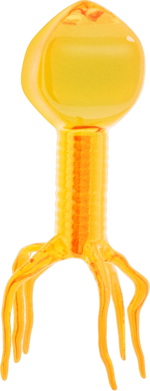Virus Infection: Difference between revisions
No edit summary |
No edit summary |
||
| Line 7: | Line 7: | ||
===Zinc=== | ===Zinc=== | ||
Zinc is another micronutrient identified as vital for immune function. Its deficiency can lead to weakened immune response, increasing susceptibility to infections. | Zinc is another micronutrient identified as vital for immune function. Its deficiency can lead to weakened immune response, increasing susceptibility to infections. | ||
{| class="wikitable" | |||
! | |||
! Inflammatory and Innate Immune Response | |||
! Adaptive Immune Response | |||
|- | |||
! Vitamin A | |||
|* Integrity of epithelia | |||
* Differentiation and function of NK cells | |||
* Promotion of Foxp3+ Treg generation | |||
* Inhibition of Th1/Th17 generation | |||
* Phagocytic and oxidative burst activity of macrophages | |||
* Secretion of the pro-inflammatory cytokines IL-12 and IL-23 | |||
| * Growth and differentiation of B cells | |||
* Production of antibodies | |||
* Immunoregulatory function of Treg cells | |||
|- | |||
! Vitamin C | |||
|* Barrier integrity | |||
* Scavenger of ROS | |||
* Chemotactic ability and antibacterial activity of neutrophils | |||
* Apoptotic process of neutrophils | |||
* Reduction of formation of neutrophil extracellular traps | |||
| * Differentiation and proliferation of B- and T-cells | |||
* Immunostimulator of antibody production (IgM and IgG) | |||
* T-cell maturation via epigenetic mechanisms | |||
|- | |||
! Vitamin D | |||
|* Production of antimicrobial peptides | |||
* Modulation of macrophages/monocytes and dendritic cells functions | |||
* Limits overproduction of pro-inflammatory cytokines from macrophages (IL1, TNFα) | |||
|* Limits overproduction of pro-inflammatory cytokines from T cells (IFNγ, IL2, IL8, IL6) | |||
* Th1 to Th2 shift, increases Th2 cytokines (IL4, IL10) | |||
* Induces differentiation of Treg | |||
* Reduces excessive antibody production | |||
|- | |||
! Zinc | |||
|* Maintenance of membrane barrier integrity | |||
* Direct antiviral effects | |||
* Decreases oxidative stress | |||
|* Limits excessive release of pro-inflammatory cytokines (IL2, IL6, and TNF-α) | |||
* Enhances the number of Treg | |||
|- | |||
! Omega 3 FA | |||
|* Structures of cell membranes | |||
* Inhibition of cytokine production | |||
* Inhibiting neutrophil migration | |||
* Clearance of polymorphonuclear leukocytes | |||
|* Specialized pro-resolving mediators (SPMs) | |||
* Treg cells formation | |||
* B cells activation | |||
* Upregulate CCR5 expression | |||
|} | |||
==Supplementation as a Supportive Measure== | ==Supplementation as a Supportive Measure== | ||
Revision as of 02:07, 20 November 2023
Viral infections, including lower respiratory tract infections (LRTIs) and COVID-19, pose significant health risks worldwide. The immune system plays a critical role in combating these infections. Current research underscores the importance of micronutrients in enhancing immune function. This article reviews the impact of specific micronutrients on the immune system and discusses the potential of supplementation as a supportive strategy against viral infections.[1]
Importance of Micronutrients in Immune Function
Vitamins and Omega-3 Fatty Acids
Studies have highlighted the crucial roles of vitamins A, C, D, and omega-3 fatty acids in modulating the immune response. These nutrients are key in supporting various aspects of both innate and adaptive immunity.
Zinc
Zinc is another micronutrient identified as vital for immune function. Its deficiency can lead to weakened immune response, increasing susceptibility to infections.
| Inflammatory and Innate Immune Response | Adaptive Immune Response | |
|---|---|---|
| Vitamin A | * Integrity of epithelia
|
* Growth and differentiation of B cells
|
| Vitamin C | * Barrier integrity
|
* Differentiation and proliferation of B- and T-cells
|
| Vitamin D | * Production of antimicrobial peptides
|
* Limits overproduction of pro-inflammatory cytokines from T cells (IFNγ, IL2, IL8, IL6)
|
| Zinc | * Maintenance of membrane barrier integrity
|
* Limits excessive release of pro-inflammatory cytokines (IL2, IL6, and TNF-α)
|
| Omega 3 FA | * Structures of cell membranes
|
* Specialized pro-resolving mediators (SPMs)
|
Supplementation as a Supportive Measure
Supplementation with these micronutrients is seen as a safe, cost-effective way to bolster the immune system. It is recommended to supplement these nutrients in addition to maintaining a balanced diet, adhering to the upper safety limits set by health authorities.
While individual micronutrients contribute to immune health, their synergistic effects require further investigation. Current research suggests that combinations of these nutrients might enhance the overall immune response more effectively.
It is crucial to note that supplementation is not a cure or guaranteed prevention for infections. Instead, it may help reduce symptoms and facilitate recovery from viral infections.
Conclusion
Implementing an optimal nutrition strategy, including a balanced diet and appropriate supplementation of key micronutrients, can be a beneficial approach to reducing the burden of infectious diseases worldwide, including COVID-19. However, this should be viewed as part of a broader strategy that includes other public health measures.

